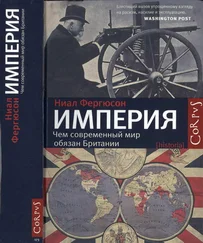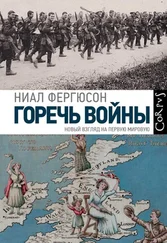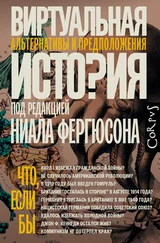Burt, Ronald S. ‘Structural Holes and Good Ideas’, American Journal of Sociology , 110, 2 (September 2004), 349–399.
CalvÓ-Armengol, Antoni and Matthew O. Jackson. ‘The Effects of Social Networks on Employment and Inequality’, American Economic Review , 94, 3 (2004), 426–454.
Carroll, Glenn R. and Albert C. Teo. ‘On the Social Networks of Managers’, Academy of Management Journal , 39, 2 (1996), 421–440.
Cassill, Deby and Alison Watkins. ‘The Evolution of Cooperative Hierarchies through Natural Selection Processes’, Journal of Bioeconomics , 12, (2010), 29–42.
Castells, Manuel. ‘Information Technology, Globalization and Social Development’, United Nations Research Institute for Social Development Discussion Paper, no. 114 (September 1999), 1–15.
Centola, Damon and Michael Macy. ‘Complex contagions and the weakness of long ties’, American Journal of Sociology , 113, 3 (2007), 702–734.
Christakis, Nicholas A. and James H. Fowler. Connected: The Surprising Power of Our Social Networks and How They Shape Our Lives . New York: Little, Brown, 2009.
Cline, Diane H. and Eric H. Cline. ‘Text Messages, Tablets, and Social Networks: The “Small World” of the Amarna Letters’, in Jana Mynárová, Pavel Onderka and Peter Pavuk (eds.), There and Back Again – The Crossroads II: Proceedings of an International Conference Held in Prague, September 15–18, 2014. Prague: Charles University, 2015, 17–44.
Coleman, James S. ‘Social Capital in the Creation of Human Capital’, American Journal of Sociology , 94 (188), S95 – S120.
Collar, Anna. Religious Networks in the Roman Empire: The Spread of New Ideas . New York: Cambridge University Press, 2013.
Crane, Diana. ‘Social Structure in a Group of Scientists: A Test of the “Invisible College Hypothesis”’, American Sociological Review , 34, 3 (June 1969), 335–352.
Currarini, Sergio, Matthew O. Jackson and Paolo Pin. ‘Identifying the Roles of Race-Based Choice and Chance in High School Friendship Network Formation’, Proceedings of the National Academy of Sciences , 16 March 2010, 4857–4861.
Dittrich, Luke, Patient H. M .: A Story of Memory, Madness and Family Secrets . London: Chatto & Windus, 2016.
Dolton, Peter. ‘Identifying Social Network Effects’, Economic Record , 93, Supplement S1 (2017).
Dubreuil, BenoÎt. Human Evolution and the Origins of Hierarchies: The State of Nature . Cambridge: Cambridge University Press, 2010.
DÜlmen, Richard van. Der Geheimbund der Illuminaten: Darstellung, Analyse, Dokumentation . Stuttgart: Frommann-Holzboog, 1975.
Dunbar, R. I. M. ‘Coevolution of Neocortical Size, Group Size and Language in Humans’, Behavioral and Brain Sciences 16, 4 (1993), 681–735.
Enrich, David. The Spider Network: The Wild Story of a Math Genius, a Gang of Backstabbing Bankers, and One of the Greatest Scams in Financial History . New York: HarperCollins, 2017.
Ferguson, Niall. ‘Complexity and Collapse: Empires on the Edge of Chaos’, Foreign Affairs , 89, 2 (March/April 2010), 18–32.
Forestier, RenÉ Le. Les illuminÉs de Bavière et la franc - maçonnerie allemande . Paris: Hachette, 1915.
Friedland, Lewis A. ‘Electronic Democracy and the New Citizenship’, Media Culture & Society , 18 (1996), 185–212.
Fukuyama, Francis. The Great Disruption: Human Nature and the Reconstitution of Social Order (New York: The Free Press, 1999)
Фукуяма, Фрэнсис. Великий разрыв / Пер. с англ. под общ. ред. А. В. Александровой. М., 2008.
Fukuyama, Francis. The Origins of Political Order: From Prehuman Times to the French Revolution . London: Profile Books, 2011.
Fukuyama, Francis. Political Order and Political Decay: From the Industrial Revolution to the Globalisation of Democracy . London: Profile Books, 2014.
Goertzel, Ted. ‘Belief in Conspiracy Theories’, Political Psychology , 15, 4. December 1994, 731–742.
Goldberg, Amir, Sameer B. Srivastava, V. Govind Manian, William Monroe and Christopher Potts. ‘Fitting In or Standing Out? The Tradeoffs of Structural and Cultural Embeddedness’, American Sociological Review , 81, 6 (2016): 1190–1222.
Gorky, Maxim, transl. Ronald Wilks, My Universities . London: Penguin Books, 1979 [1922].
Горький, Максим. Детство. В людях. Мои университеты . М., 2018.
Granovetter, Mark. ‘The Strength of Weak Ties’, American Journal of Sociology , 78, 6 (May 1973), 1360–1380.
Granovetter, Mark. ‘The Strength of Weak Ties: A Network Theory Revisited’, Sociological Theory , 1 (1983), 201–233.
Greif, Avner. ‘Contract Enforceability and Economic Institutions in Early Trade: The Maghribi Traders’ Coalition’, American Economic Review , 83, 3 (June 1993), 525–548.
Greif, Avner. ‘Reputation and Coalitions in Medieval Trade: Evidence on the Maghribi Traders’, Journal of Economic History , 49, 4 (December 1989), 857–882.
Grewal, David Singh. Network Power: The Social Dynamics of Globalization . New Haven: Yale University Press, 2008.
Harari, Yuval Noah. Homo Deus: A Brief History of Tomorrow . New York: HarperCollins, 2017.
Харари, Юваль Ной. Homo Deus: Краткая история будущего / Пер. А. Андрееева. М., 2018.
Harari, Yuval Noah. Sapiens: A Brief History of Humankind . New York: HarperCollins, 2015.
Харари, Юваль Ной. Sapiens. Краткая история человечества / Пер. Л. Сумм. М., 2019.
Harrison, Richard J. and Glenn R. Carroll. ‘The Dynamics of Cultural Influence Networks’, Computational & Mathematical Organization Theory , 8 (2002), 5–30.
Hataley, K. M. ‘In Search of the Illuminati: A Light Amidst Darkness’, Journal of the Western Mystery Tradition , 23, 3 (2012).
Henrich, Joseph. The Secret of Our Success: How Culture is Driving Human Evolution, Domesticating Our Species, and Making Us Smarter . Princeton: Princeton University Press, 2016.
Heylighen, Francis. ‘From Human Computation to the Global Brain: The Self-Organization of Distributed Intelligence’, in Pietro Michelucci (ed.), Handbook of Human Computation . New York: Springer, 2013, 897–909.
Heylighen, Francis. ‘The Global Superorganism: An Evolutionary-Cybernetic Model of the Emerging Network Society’, Social Evolution and History , 1, 6 (2007), 57–117.
Hofman, Amos. ‘Opinion, Illusion, and the Illusion of Opinion: Barruel’s Theory of Conspiracy’, Eighteenth - Century Studies , 27, 1 (Autumn, 1993), 27–60.
Hofstadter, Richard. The Paranoid Style in American Politics and Other Essays . New York: Alfred A. Knopf, 1965.
Israel, Jonathan. Democratic Enlightenment: Philosophy, Revolution, and Human Rights , 1750–1790. Oxford: Oxford University Press, 2011.
Ito, Joi and Jeff Howe. Whiplash: How to Survive Our Faster Future . New York: Grand Central Publishing, 2016.
Jackson, Matthew O. ‘Networks in the Understanding of Economic Behaviors’, Journal of Economic Perspectives , 28, 4 (2014), 3–22.
Jackson, Matthew O. Social and Economic Networks . Princeton: Princeton University Press, 2008.
Jackson, Matthew O. and Brian W. Rogers. ‘Meeting Strangers and Friends of Friends: How Random are Social Networks?’, American Economic Review , 97, 3 (2007), 890–915.
Читать дальше
Конец ознакомительного отрывка
Купить книгу
![Ниал Фергюсон Площадь и башня [Cети и власть от масонов до Facebook] обложка книги](/books/401258/nial-fergyuson-plochad-i-bashnya-ceti-i-vlast-ot-ma-cover.webp)











